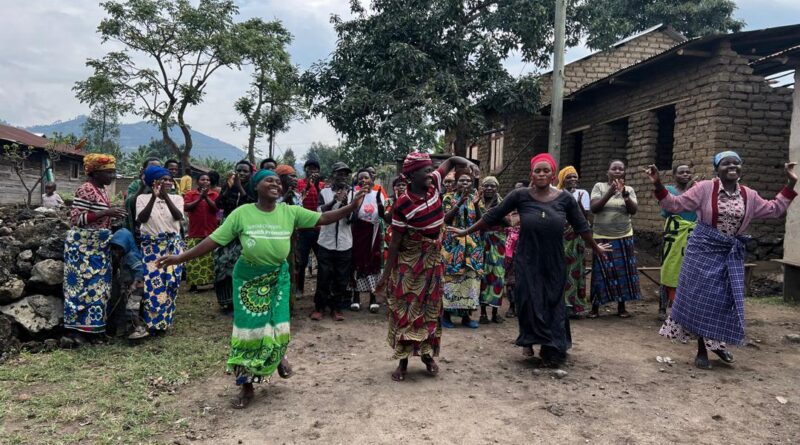Historically Marginalized People Reveal that their Development is Hindered by Societal Attitudes
The historically marginalized people in Rubavu District say that after being resettled from the forests into various villages, they have made significant progress, including learning to live with people from different social backgrounds and coming up with projects to support themselves and improve their livelihoods.
Those residents of Bugu Village, Busigari Cell in Cyanzarwe Sector, indicate that despite this progress, they are still being held back by some societal attitudes. These perceptions see them as uninformed and incapable of engaging in income-generating activities such as business or saving money.
“Since we arrived here, our mindset has changed drastically, although it’s not yet 100%. Now, everyone here survives through manual labor. We’ve learned that we can also engage in business, farming, and other ventures, rather than just working to survive and being unable to pay for basic services like health insurance (Mituelle de santé) when a family member falls sick.”Alphonsine Icyimanizanye said.
“Some still see us as uninformed, only capable of tough manual labor, begging, and relying on aid. However, despite limited financial resources, if we were supported, we could join saving groups (ibimina) and save money. We currently have a small group where we contribute 200 RWF a week. Though it’s a small amount, when we divide it, it helps us.”She continued:
They say there are still some who believe that these families cannot manage money responsibly due to their past experiences.
“For example, some don’t support us because they’re told that we won’t manage to keep the money for long, that we’ll spend it instead of using it to do business. But I can run a business selling potatoes or delivering vegetables to people’s homes and save the profits. I don’t want to keep running around looking for casual jobs every day.”Mukadoni Nyiramasiporo added.
They expressed that such attitudes hinder their development and even negatively affect their husbands, leading to premature health issues and disability.
“This affects our ability to live a better life, and even though there are things we’re capable of doing, it’s hindered by the mindset of others. The government’s ‘I am Rwandan’ policy is making progress, and we see the direction of development. How can we still live in the past while everyone else is moving forward?” she asked.
“Our husbands only engage in hard manual labor like working in other people’s fields, carrying heavy stones, or herding other people’s cattle (…). As a result, many suffer from a condition known as ‘IGITURI’ (a debilitating heart condition), and once it strikes, they are bedridden, leaving their families in deeper poverty.”
This is echoed by 67-year-old Semisikira Uwabeza, who said his strength is now diminished. He used to depend on casual labor to survive, but now he can spend long periods without eating during the day or even at night.
“I used to do odd jobs both sides , and my wife would do the same. We would manage to earn around 2,000 RWF (approx. $1.50) daily for food. But now, my strength is gone due to the hard labor I’ve done, and I spend most of my time at home. My wife alone can’t sustain us, so I’ve gotten used to eating as little as possible.”
Rubavu District authorities responded to the concerns raised by these families, explaining that the families were initially given land, which they later sold because they had no farming background.
Pacifique Ishimwe, the Vice Mayor of Rubavu District in charge of social welfare and development, said: “First, I want to commend these residents for the significant strides they’ve made in changing their mindset and understanding government programs.”
“When they were resettled, they were given land for farming, but they sold it because they weren’t accustomed to farming. However, some are now starting to realize its value (…). But since they no longer have land, they now work for others, which they consider hard labor, and it’s true.”She added.
Ishimwe went on to say: “We had grouped them into cooperatives, including one in pottery, but they need to modernize their pottery skills to become more productive. We will continue to support them in identifying other income-generating projects that can help them resolve their everyday problems, including sending their children to school as the foundation for their future independence and paying for health insurance.”
These 60 families, who were resettled from Nyakiriba Sector on the outskirts of Gishwati Forest to Cyanzarwe, say that the lack of land for farming has left them dependent on casual labor, which hinders their progress from childhood to old age.
They request more support in the form of subsidies to help them engage in projects that will improve their livelihoods, enabling them to address economic challenges and send their children to school on time. Most of their children start school between the ages of 7 and 10 due to financial constraints.

